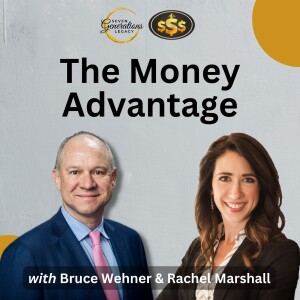
Seven Deadly Economic Sins, with James Otteson
 2023-01-23
2023-01-23
Download
Right click and do "save link as"
You have heard of the Seven Deadly Sins: pride, greed, lust, envy, gluttony, wrath, and sloth. Each is a natural human weakness that impedes happiness. In addition to these vices, however, there are economic sins as well. And they, too, wreak havoc on our lives and in society. They can seem intuitively compelling, yet they lead to waste, loss, and forgone prosperity. James Otteson, the John T. Ryan Professor of Business Ethics at the University of Notre Dame, is the author of Seven Deadly Economic Sins.
https://www.youtube.com/watch?v=FxZ8_rxEbyI
In this thoughtful and compelling book, James Otteson tells the story of seven central economic fallacies. He explains why believing in these fallacies leads to mistakes and loss, and how to avoid costly errors. This, ultimately, enables us to live in peace and prosperity.
Today, on the podcast, we discuss:
What economists agree about
Why wealth creation is positive-sum, not zero-sum
How market economies have enabled more prosperity than any other system of economics
Why business can be moral and honorable
If you want a conversation about economics, philosophy, and how nations prosper… tune in now!
Table of contentsFrom Philosophy to EconomicsTeaching Business EthicsWho is James Otteson’s Seven Deadly Economic Sins For? Is Wealth a Zero Sum?The Morality of BusinessAbout James OttesonOtteson at Notre DameBook A Strategy Call
From Philosophy to Economics
In the blink of an eye, James Otteson found his path changed from medicine to philosophy, thanks to a required college course.
[7:40] “I thought if you went to college, you should either become a medical doctor or a lawyer. I thought those were the two things you became. So I was going to be a medical doctor, and I just happened to take a course that I was required to take, that was taught by a Classics professor… It led me into the great books program at Notre Dame.”
He notes that when he was in grad school in Chicago, one of his philosophical heroes was David Hume. In particular, he wanted to write his thesis on Hume’s moral theory. His research eventually led him to Adam Smith and his book, The Theory of Moral Sentiments, which was a pivotal moment in Otteson’s career and became the new subject of his dissertation. What he discovered was that very few people had really written on or responded to Smith’s book, and Otteson viewed it as an untapped well. It was Smith's ideology on morals that sparked Otteson's initial interest in the economy and politics.
Teaching Business Ethics
After teaching courses on the history of economic thought for some time, Otteson was asked to teach a course on business ethics. When working on the course and how he would approach it, Otteson learned there was very little consensus on how a business ethics course ought to go.
[11:41] “I thought it might be more interesting and maybe more productive, if instead of just looking at all the ways that business could go wrong, instead turning it around a little bit and asking: “Is there some kind of moral purpose that a life in business could actually serve?”
By reframing the class slightly, he could have students think through whether it is possible to be fully engaged in a business and also be a virtuous person.
Who is James Otteson’s Seven Deadly Economic Sins For?
James Otteson’s research heavily influenced his latest book, Seven Deadly Economic Sins. The book was written with an intelligent audience in mind, specifically, those who are not economists yet are interested in working well within the existing economy.
[14:10] “We all have our opinions about politics. But we also, many of us, have very strong opinions about economic matters even though, curiously, many of us have not studied economics.”
So while everyone may have an opinion about something like minimum wage, not everyone has read the academic literature on the topic. And in fairness, as Otteson shares,
view more
More Episodes
Marshall Family Banking System, Pt. 4
 2024-01-15
2024-01-15
 2024-01-15
2024-01-15
Seven Generations Legacy Book Launch
 2023-12-07
2023-12-07
 2023-12-07
2023-12-07
3 Reasons to Leave an Inheritance
 2023-10-30
2023-10-30
 2023-10-30
2023-10-30
New Agent Licensing and IMOs
 2023-10-16
2023-10-16
 2023-10-16
2023-10-16
Interest Rates and Whole Life Insurance
 2023-10-02
2023-10-02
 2023-10-02
2023-10-02
012345678910111213141516171819
Create your
podcast in
minutes
- Full-featured podcast site
- Unlimited storage and bandwidth
- Comprehensive podcast stats
- Distribute to Apple Podcasts, Spotify, and more
- Make money with your podcast
It is Free
- Privacy Policy
- Cookie Policy
- Terms of Use
- Consent Preferences
- Copyright © 2015-2024 Podbean.com




